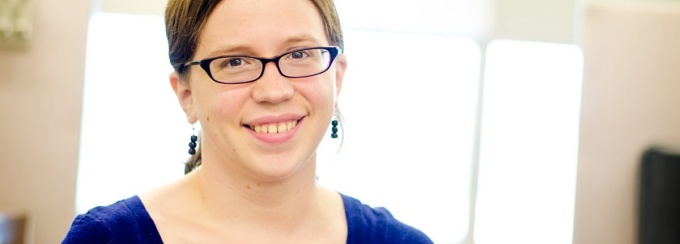Risk Factors for Air Pollution Exposure in Bangladesh

Anne Weaver shares her account of studying the risk factors for exposure to air pollution in Bangladesh.
Anne Weaver is a postdoctoral researcher at the U.S. Environmental Protection Agency. She conducted the fieldwork below as part of her doctoral program at UB.
From late July to late September 2013, I had the opportunity to travel to Dhaka, Bangladesh, to conduct field work for a study that is a part of my PhD dissertation in the Department of Epidemiology and Environmental Health at UB. I am studying under the advisement of Dr. Pavani Ram, and have additional collaborators at UB, Johns Hopkins and the International Centre for Diarrhoeal Disease Research, Bangladesh (ICDDR,B).
My trip was sponsored by an International Field Work Scholarship from the UB School of Public Health and Health Professions’ Office of Global Health Initiatives and a Microbial Pathogenesis Training Grant from the Department of Microbiology and Immunology.
Respiratory infections are the leading cause of death in children under the age of five worldwide and in Bangladesh. Exposure to air pollution is believed to be a major risk factor for respiratory infections. The focus of my dissertation is to identify the risk factors for exposure to air pollution in Bangladesh. In a previous study, I examined the effect of household ventilation (windows, doors and fans) on air pollution in the Kamalapur slum area in Dhaka, Bangladesh. I found that homes with windows had reduced indoor air pollution compared to homes without windows. Additionally, indoor air pollution levels were similar to outdoor air pollution levels.
One of the major sources of household air pollution worldwide is cooking with wood, bamboo, animal dung or similar fuels (biomass fuel). Biomass fuel use is relatively rare in urban Dhaka slums (6-10% of homes use only biomass fuel for cooking), but high levels of air pollution have been observed, even in homes that do not use biomass fuel. Given my previous findings that indoor and outdoor air pollution levels were related, I traveled to Bangladesh to identify whether or not biomass smoke from a neighboring home may affect indoor air pollution in a home that uses cleaner fuel. My team recruited homes that use wood for cooking and neighboring homes that use electric stoves in the Mirpur slum area in Dhaka. We monitored air pollution levels in each home, and I am currently analyzing the data.
Due to the previous study I completed in Bangladesh, I was prepared for daily life there, but physically being in Bangladesh and visiting participants’ homes was incredibly valuable to understanding the lifestyle and living conditions of study participants. I was struck again by the hospitality of the residents and my colleagues. When I visited homes, people insisted that I come in to sit and rest. I was warmly welcomed and offered food or tea in nearly every home I visited. Although I know very little Bengali, participants and colleagues alike were thrilled that I knew any at all. The hospitality and friendliness are nearly-universal in a country that gained independence in 1971, after a devastating revolutionary war. Bangladesh has also been plagued by cyclones, droughts and famines. I am amazed at how far the people of Bangladesh have come in just 42 years and how they continue to work unceasingly to better their country, despite so many obstacles.
I have been involved in global health work for most of my graduate studies. For my master’s thesis, I conducted a secondary analysis of data that was previously collected in Nyanza Province, Kenya. Having never been in Kenya, I struggled to put these data into context. Working in Bangladesh in person for an extended period of time for two of my dissertation projects has helped me to better understand and analyze the data. Additionally, supervising the implementation of a study and leading a team with a variety of English skills was a daunting task. This experience challenged me, but I gained self-confidence as a researcher. I would strongly encourage anyone to work internationally. I never imagined how much I would learn about myself and about the world.
--Anne Weaver